+JMJ+
In this e-weekly:
- HALLOW-incredible Catholic app for Prayer, learning, and more (Catholic Website Classic of the Week)
- Pope Francis Hearing Confessions at Roman Parish: God Lifts us Up When We Hit "rock bottom" (Diocesan News and BEYOND)
- Living and Loving Others (Helpful Hints for Life)
In this e-weekly:
- HALLOW-incredible Catholic app for Prayer, learning, and more (Catholic Website Classic of the Week)
- Pope Francis Hearing Confessions at Roman Parish: God Lifts us Up When We Hit "rock bottom" (Diocesan News and BEYOND)
- Living and Loving Others (Helpful Hints for Life)
Hallow is a prayer app that offers guided meditation sessions to help us grow in our faith & spiritual lives and find peace in God.
“I grew up Catholic, but fell away from my faith and became fascinated with secular meditation. Something, though, was always missing. It felt like I was being pulled towards something spiritual, something more. So I started asking everyone if there was any sort of intersection between meditation and faith, and what I found changed my life.” -Alex Jones, Founder of Hallow
The Hallow app offers many ways to deepen your prayer life, such as:
-Pray with the reading from the daily Gospel each morning in just 5, 10, or 15 minutes (you choose the length)
-Fall asleep with Bible sleep stories from Fr. Mike Schmitz, Jonathan Roumie, or various Scripture readings by guest readers.
-Meditate with the daily Rosary or many other prayers on your way to work, with your morning coffee, or as you go about your day
-Try praying with music, hearing the Bible in a Year podcast, and much, much more!
Some features include:
-Listen on the way to work, on a plane, in the morning, or at night with downloadable offline sessions and customized lengths anywhere from 1, 5, 10, 15, 30, or 60 minute options!
-Personalize your prayer experience. Choose your guide, length, background music like Gregorian chant, set your favorites, journal, and create your own personal prayer plan.
Try Hallow Premium free for three months!
Go to this link to set up an account on the Hallow website or use the codes below:
https://hallow.com/share/AR6RCL
After you have setup your account, download the app by searching for “Hallow Catholic” in the App Store or Google Play, sign in using the account you just created, and start praying!
“I grew up Catholic, but fell away from my faith and became fascinated with secular meditation. Something, though, was always missing. It felt like I was being pulled towards something spiritual, something more. So I started asking everyone if there was any sort of intersection between meditation and faith, and what I found changed my life.” -Alex Jones, Founder of Hallow
The Hallow app offers many ways to deepen your prayer life, such as:
-Pray with the reading from the daily Gospel each morning in just 5, 10, or 15 minutes (you choose the length)
-Fall asleep with Bible sleep stories from Fr. Mike Schmitz, Jonathan Roumie, or various Scripture readings by guest readers.
-Meditate with the daily Rosary or many other prayers on your way to work, with your morning coffee, or as you go about your day
-Try praying with music, hearing the Bible in a Year podcast, and much, much more!
Some features include:
-Listen on the way to work, on a plane, in the morning, or at night with downloadable offline sessions and customized lengths anywhere from 1, 5, 10, 15, 30, or 60 minute options!
-Personalize your prayer experience. Choose your guide, length, background music like Gregorian chant, set your favorites, journal, and create your own personal prayer plan.
Try Hallow Premium free for three months!
Go to this link to set up an account on the Hallow website or use the codes below:
https://hallow.com/share/AR6RCL
After you have setup your account, download the app by searching for “Hallow Catholic” in the App Store or Google Play, sign in using the account you just created, and start praying!
Catholic Good News
Receiving the Gospel, Serving God and Neighbor
Laetare Sunday
“Rejoice, O Jerusalem: and come together all you that love her: rejoice with joy you that have been in sorrow:
that you may exult, and be filled from the breasts of your consolation.
I rejoiced at the things that were said to me: we shall go into the house of the Lord."
-Isaiah 66:10-11; Psalm 121:1
Receiving the Gospel, Serving God and Neighbor
Laetare Sunday
“Rejoice, O Jerusalem: and come together all you that love her: rejoice with joy you that have been in sorrow:
that you may exult, and be filled from the breasts of your consolation.
I rejoiced at the things that were said to me: we shall go into the house of the Lord."
-Isaiah 66:10-11; Psalm 121:1
Dear friends in Christ Jesus,
Sometimes in life we have long projects or difficult journeys to complete. Some view the season of Lent this way. So the Church helps us and encourages us at such times.
One way the Church does this is by marking the middle of a journey or when it is over half-way completed, and this is the case with Lent. Generally, Lent is a subdued time with focus and work on prayer, fasting, and almsgiving. Music is less during the Masses of Lent, and the organ is recommended not to be used at all. Longer readings of Sacred Scripture and silence tends to play a big part in the Mass. Flowers are not used to adorn the altar. But all this is lessened with Laetare Sunday.
The Thursday before Laetare Sunday (read more below) is actually the middle day of Lent, and it was at one time observed as such, but afterwards the special signs of joy permitted on this day, intended to encourage the faithful in their course through the season of Lent, were transferred to the Sunday following this Thursday. These special signs of joy consist (like those of Gaudete Sunday in Advent [3rd Sunday of Advent]) in the use of flowers on the altar, and of the organ at Mass; rose-colored vestments (NOT pink :o) ) are allowed instead of purple. The contrast between Laetare and the other Sundays of Lent is thus emphasized, and is characteristic of the joys of this life, restrained rejoicing mingled with a certain amount of sadness.
Peace and prayers in Jesus through Mary, loved by Saint Joseph,
Father Robert
P.S. This Sunday is Laetare Sunday, the Fourth Sunday of Lent. The readings can be found at: https://bible.usccb.org/bible/readings/031024-YearB.cfm
Catholic Terms of the Week
Laetare Sunday (from Latin laetare “(you) Rejoice! or (you) Be Glad!”)
- the fourth Sunday of Lent marking that Lent is over half way completed;
Rose-colored vestments may be worn, flowers are permitted and organ played (Laetare – Latin meaning “Rejoice” comes from the opening of the Mass "Laetare Jerusalem…" -- "Rejoice, O Jerusalem…")
Gaudete Sunday (from Latin gaudete “(you all) Rejoice!”)
- the Third Sunday of Advent marking with subdued joy that we are over half way in our waiting for Christmas; Rose-colored vestments may be worn while the rose candle is lit on the Advent wreath (Gaudete comes from the opening of the Mass: Gaudete in Domino simper… –“Rejoice in the Lord always…”)
Laetare Sunday (from Latin laetare “(you) Rejoice! or (you) Be Glad!”)
- the fourth Sunday of Lent marking that Lent is over half way completed;
Rose-colored vestments may be worn, flowers are permitted and organ played (Laetare – Latin meaning “Rejoice” comes from the opening of the Mass "Laetare Jerusalem…" -- "Rejoice, O Jerusalem…")
Gaudete Sunday (from Latin gaudete “(you all) Rejoice!”)
- the Third Sunday of Advent marking with subdued joy that we are over half way in our waiting for Christmas; Rose-colored vestments may be worn while the rose candle is lit on the Advent wreath (Gaudete comes from the opening of the Mass: Gaudete in Domino simper… –“Rejoice in the Lord always…”)
“Helpful Hints of Life”
Living and Loving Others
Never take a "You did", "You said", "You always", and "You never" approach to any discussion with someone you know. Use non-threatening language, and voice tones that bring forth the spirit of cooperation and trust you should have with another especially if you profess to love that person. "I" statements are much better, because they say where you are coming from, and invite the other to respond. (I get worried when you come back late. I am hurt when you do not tell me anything. etc.)
“This is the day which the LORD has made; let us rejoice and be glad in it.
Jesus rose from the dead "on the first day of the week." Because it is the "first day," the day of Christ's Resurrection recalls the first creation. Because it is the "eighth day" following the sabbath, it symbolizes the new creation ushered in by Christ's Resurrection. For Christians it has become the first of all days, the first of all feasts, the Lord's Day (he kuriake hemera, dies dominica) Sunday:
We all gather on the day of the sun, for it is the first day [after the Jewish sabbath, but also the first day] when God, separating matter from darkness, made the world; and on this same day Jesus Christ our Savior rose from the dead.”
Catechism of the Catholic Church #2174
Living and Loving Others
Never take a "You did", "You said", "You always", and "You never" approach to any discussion with someone you know. Use non-threatening language, and voice tones that bring forth the spirit of cooperation and trust you should have with another especially if you profess to love that person. "I" statements are much better, because they say where you are coming from, and invite the other to respond. (I get worried when you come back late. I am hurt when you do not tell me anything. etc.)
“This is the day which the LORD has made; let us rejoice and be glad in it.
Jesus rose from the dead "on the first day of the week." Because it is the "first day," the day of Christ's Resurrection recalls the first creation. Because it is the "eighth day" following the sabbath, it symbolizes the new creation ushered in by Christ's Resurrection. For Christians it has become the first of all days, the first of all feasts, the Lord's Day (he kuriake hemera, dies dominica) Sunday:
We all gather on the day of the sun, for it is the first day [after the Jewish sabbath, but also the first day] when God, separating matter from darkness, made the world; and on this same day Jesus Christ our Savior rose from the dead.”
Catechism of the Catholic Church #2174
Here is a website for the modern Roman Catholic. First, many free things; second, great news and commentary; third, great Catholic resources for most any topic; and finally it was started by as average a Catholic Joe as there ever was. Site describes itself as having:
· Swift and Effortless Online Ordering
· Free Rapid Delivery to Your Doorstep
· The Finest Catholic CDs, Tapes, and Novels
· Parish-Friendly Catholic Resources
· Superb & Innovative News and Commentary
Following is a reminder on where to find a televised Mass:
Daily Mass with Word on Fire from Bishop Robert Barron’s Chapel
Daily Mass from Saint John’s Abbey, Collegeville, MN
Sunday Masses for the homebound telecast from the Archdiocese of St. Louis (includes listings for both antenna and cable television, radio and online)
Shrine of Our Lady of the Snows, Belleville - English and Spanish Masses available beginning March 22, 2020
EWTN: https://www.ewtn.com/tv/channel-finder (English)
https://www.ewtn.com/espanol/magtv.asp (Spanish)
Catholic TV: https://www.catholictv.org
If someone would like to begin the practice of daily prayer, there is an app that provides a new prayer session every day produced by Jesuit Ministries and is based on Ignatian Spirituality. https://pray-as-you-go.org/
Other resources for daily prayer:
https://us.magnificat.net/free
https://latina/magnificat.net/gratis
https://ebreviary.com/ebreviary/ebreviary.nsf/prayersforeveryone.htm
“Give Us This Day” is providing free access to their digital edition and their mobile app. For more information go to https://offers.giveusthisday.org/free-resources
Family and Youth Resources
Loyola Press is offering free resources to families on faith, family and fun. They are also providing a resource to help teachers, catechists and parents explain COVID-19 to their children.
Pope Francis heard confessions at a parish in Rome on Friday and encouraged people to remember that God “holds out his hand and lifts us up whenever we realize that we are ‘hitting rock bottom.’”
In the presence of Eucharistic Adoration, the pope presided over a Lenten penitential service on March 17 to open “24 Hours for the Lord,” an initiative in which certain Catholic churches around the world will remain open 24 consecutive hours with round-the-clock confession and adoration.
“Brothers, sisters, let us remember this: The Lord comes to us when we step back from our presumptuous ego. … He can bridge the distance whenever, with honesty and sincerity, we bring our weaknesses before him,” Pope Francis said.
“He holds out his hand and lifts us up whenever we realize we are ‘hitting rock bottom’ and we turn back to him with a sincere heart. That is how God is. He is waiting for us, deep down, for in Jesus he chose to ‘descend to the depths.’”
In the presence of Eucharistic Adoration, the pope presided over a Lenten penitential service on March 17 to open “24 Hours for the Lord,” an initiative in which certain Catholic churches around the world will remain open 24 consecutive hours with round-the-clock confession and adoration.
“Brothers, sisters, let us remember this: The Lord comes to us when we step back from our presumptuous ego. … He can bridge the distance whenever, with honesty and sincerity, we bring our weaknesses before him,” Pope Francis said.
“He holds out his hand and lifts us up whenever we realize we are ‘hitting rock bottom’ and we turn back to him with a sincere heart. That is how God is. He is waiting for us, deep down, for in Jesus he chose to ‘descend to the depths.’”
Pope Francis encouraged people to remember that God “holds out his hand and lifts us up whenever we realize that we are ‘hitting rock bottom’” at the Church of Santa Maria delle Grazie al Trionfale in Rome on Friday, March 17, 2023. Credit: Daniel Ibañez/CNAThe pope underlined that God waits for us, especially in the sacrament of penance, where he said the Lord touches our wounds, heals our hearts, and leaves us with inner peace.
Pope Francis visited the Church of Santa Maria delle Grazie al Trionfale, a parish located about one mile from the pope’s residence inside Vatican City.
Upon his arrival at the parish, the pope kissed a small Marian icon from his wheelchair and gave a bouquet of flowers to Our Lady. He offered greetings and shook hands with many people inside the parish from his wheelchair.
The pope offered a homily on God’s mercy before leading the parish in the Confiteor prayer.
Many people made confessions to priests — and some to the pope himself — during the Holy Hour at the Roman parish just outside the walls of Vatican City.
Pope Francis visited the Church of Santa Maria delle Grazie al Trionfale, a parish located about one mile from the pope’s residence inside Vatican City.
Upon his arrival at the parish, the pope kissed a small Marian icon from his wheelchair and gave a bouquet of flowers to Our Lady. He offered greetings and shook hands with many people inside the parish from his wheelchair.
The pope offered a homily on God’s mercy before leading the parish in the Confiteor prayer.
Many people made confessions to priests — and some to the pope himself — during the Holy Hour at the Roman parish just outside the walls of Vatican City.
Pope Francis hears confessions at the Church of Santa Maria delle Grazie al Trionfale in Rome on Friday, March 17, 2023. Credit: Daniel Ibañez/CNAPope Francis began the “24 Hours for the Lord” initiative in 2014, one year before he announced the Extraordinary Jubilee of Mercy.
The Vatican Dicastery for Evangelization has asked dioceses around the world to once again open churches for 24 hours from Friday, March 17, to Saturday, March 18, to offer the opportunity to make confessions and pray in the presence of Eucharistic Adoration.
In his homily, Pope Francis asked the parishioners to repeat together the prayer of a tax collector in chapter 18 of the Gospel of Luke: “God, be merciful to me, a sinner.”
The pope prayed: “God, be merciful to me, a sinner! When I forget you or I neglect you, when I prefer my words and those of the world to your own word, when I presume to be righteous and look down on others, when I gossip about others … God, be merciful to me, a sinner.”
“When I care nothing for those all around me, when I’m indifferent to the poor and the suffering, the weak and the outcast, God, be merciful to me, a sinner! For my sins against life, for my bad example that mars the lovely face of Mother Church, for my sins against creation, God, be merciful to me, a sinner.”
“For my falsehoods, my duplicity, my lack of honesty and integrity, God, be merciful to me, a sinner. For my hidden sins, for the ways in which I have unconsciously wronged others, and for the good I could have done and yet failed to do, God, be merciful to me, a sinner.”
The Vatican Dicastery for Evangelization has asked dioceses around the world to once again open churches for 24 hours from Friday, March 17, to Saturday, March 18, to offer the opportunity to make confessions and pray in the presence of Eucharistic Adoration.
In his homily, Pope Francis asked the parishioners to repeat together the prayer of a tax collector in chapter 18 of the Gospel of Luke: “God, be merciful to me, a sinner.”
The pope prayed: “God, be merciful to me, a sinner! When I forget you or I neglect you, when I prefer my words and those of the world to your own word, when I presume to be righteous and look down on others, when I gossip about others … God, be merciful to me, a sinner.”
“When I care nothing for those all around me, when I’m indifferent to the poor and the suffering, the weak and the outcast, God, be merciful to me, a sinner! For my sins against life, for my bad example that mars the lovely face of Mother Church, for my sins against creation, God, be merciful to me, a sinner.”
“For my falsehoods, my duplicity, my lack of honesty and integrity, God, be merciful to me, a sinner. For my hidden sins, for the ways in which I have unconsciously wronged others, and for the good I could have done and yet failed to do, God, be merciful to me, a sinner.”
The Year for Consecrated Life, which began Nov. 30, 2014, concluded Feb. 2 on the Feast of the Presentation of Jesus.
Sr. Mary Christa, who also runs U.S. bishops' visitor's office in Rome with several other Sisters of Mercy, called the habit of a religious sister an important part of being a witness.
“The religious habit should say a number of things, both to the sister herself, and to those who see her,” she said, recounting how she is often approached by strangers asking for prayers, who automatically trust her on account of her appearance.
“The habit is a visible sign of the love of God,” she said. “But it’s also, I have found, a great responsibility and a reminder to me: the responsibility to be what I show that I am.”
“It’s a sign of the love of God and that this life is not all there is: that God exists and loves them,” she said.
One of the distinguishing aspects of their habit – a dark veil and a simple, pale blue frock in the summer, and a darker color for the winter – is a simple black cross, overlaid by a smaller white cross, which is worn around the neck.
“The black of the cross represents the misery of mankind that we find in the world, and the white represents God’s mercy, which we are called to bring into the world as Sisters of Mercy,” explained Sr. Mary Michaela, who works at the visitor's office.
“There is a long tradition in religious life of wearing a habit as a visible sign that we are consecrated to God and to the service of the Church in a special way,” she said. “It’s also part of poverty,” she added. “Our habit is simple, so we don’t buy a big wardrobe.”
Living in Rome, Sr. Mary Michaela noted how she too is approached by people asking for prayers on account of her habit.
“When they see the habit, they realize that there is something particular about our life,” she said.
“They recognize that we represent, in some way, God’s presence. We remind people of God’s presence here in the world.”
First established in Ireland in 1831 by venerable Catherine McAuley, the Sisters of Mercy centered their work on education, catechesis, healthcare. Spreading to the United States, the order was re-founded in 1973 in Alma, Michigan, where its motherhouse is currently located.
In addition to the three vows taken by all religious sisters, the Sisters of Mercy take a fourth vow of service to the poor, sick, and ignorant.
In Rome, the Sisters of Mercy offer orientation to U.S. Pilgrims – obtaining tickets for papal events, answering their questions about the city, and helping them with the pilgrimage aspect of their visit.
“This is one of the apostolic works that we do as a community,” said Sr. Regina Marie, speaking on her work at the visitor's office.
Pilgrims “can come here and learn about the faith,” she said. “We will often have a priest that will come at a certain time for a half hour and give catechesis for anyone who wants to. We have catechetical materials out for the pilgrims, (or) even just a place for them to sit down for a few minutes.”
“Our charism is the mercy of God,” she said. “Our apostolates are usually focused around the corporal and spiritual works of mercy, which can manifest themselves in many ways.”
Sr. Anna Marie, another sister at the office, adds that “the consecrated life is a sign of his presence on earth.”
“We live our vows so that when people see us, they think of God, and they think of Jesus, and they think of the Church. That’s a tremendous privilege.”
On how people will often ask her about her life as a religious, Sr. Anna Marie said she is excited to answer their questions.
“It’s a gift not only for me, but a gift for the whole Church and for the world,” she said.
“Christ and his Church thus together make up the "whole Christ" (Christus totus). The Church is one with Christ.
The saints are acutely aware of this unity:
Let us rejoice then and give thanks that we have become not only Christians, but Christ himself. Do you understand and grasp, brethren, God's grace toward us? Marvel and rejoice: we have become Christ. For if he is the head, we are the members; he and we together are the whole man. . . . The fullness of Christ then is the head and the members. But what does "head and members" mean? Christ and the Church.
Our redeemer has shown himself to be one person with the holy Church whom he has taken to himself.
Head and members form as it were one and the same mystical person.
A reply of St. Joan of Arc to her judges sums up the faith of the holy doctors and the good sense of the believer: "About Jesus Christ and the Church, I simply know they're just one thing, and we shouldn't complicate the matter.” Catechism of the Catholic Church #795
Sr. Mary Christa, who also runs U.S. bishops' visitor's office in Rome with several other Sisters of Mercy, called the habit of a religious sister an important part of being a witness.
“The religious habit should say a number of things, both to the sister herself, and to those who see her,” she said, recounting how she is often approached by strangers asking for prayers, who automatically trust her on account of her appearance.
“The habit is a visible sign of the love of God,” she said. “But it’s also, I have found, a great responsibility and a reminder to me: the responsibility to be what I show that I am.”
“It’s a sign of the love of God and that this life is not all there is: that God exists and loves them,” she said.
One of the distinguishing aspects of their habit – a dark veil and a simple, pale blue frock in the summer, and a darker color for the winter – is a simple black cross, overlaid by a smaller white cross, which is worn around the neck.
“The black of the cross represents the misery of mankind that we find in the world, and the white represents God’s mercy, which we are called to bring into the world as Sisters of Mercy,” explained Sr. Mary Michaela, who works at the visitor's office.
“There is a long tradition in religious life of wearing a habit as a visible sign that we are consecrated to God and to the service of the Church in a special way,” she said. “It’s also part of poverty,” she added. “Our habit is simple, so we don’t buy a big wardrobe.”
Living in Rome, Sr. Mary Michaela noted how she too is approached by people asking for prayers on account of her habit.
“When they see the habit, they realize that there is something particular about our life,” she said.
“They recognize that we represent, in some way, God’s presence. We remind people of God’s presence here in the world.”
First established in Ireland in 1831 by venerable Catherine McAuley, the Sisters of Mercy centered their work on education, catechesis, healthcare. Spreading to the United States, the order was re-founded in 1973 in Alma, Michigan, where its motherhouse is currently located.
In addition to the three vows taken by all religious sisters, the Sisters of Mercy take a fourth vow of service to the poor, sick, and ignorant.
In Rome, the Sisters of Mercy offer orientation to U.S. Pilgrims – obtaining tickets for papal events, answering their questions about the city, and helping them with the pilgrimage aspect of their visit.
“This is one of the apostolic works that we do as a community,” said Sr. Regina Marie, speaking on her work at the visitor's office.
Pilgrims “can come here and learn about the faith,” she said. “We will often have a priest that will come at a certain time for a half hour and give catechesis for anyone who wants to. We have catechetical materials out for the pilgrims, (or) even just a place for them to sit down for a few minutes.”
“Our charism is the mercy of God,” she said. “Our apostolates are usually focused around the corporal and spiritual works of mercy, which can manifest themselves in many ways.”
Sr. Anna Marie, another sister at the office, adds that “the consecrated life is a sign of his presence on earth.”
“We live our vows so that when people see us, they think of God, and they think of Jesus, and they think of the Church. That’s a tremendous privilege.”
On how people will often ask her about her life as a religious, Sr. Anna Marie said she is excited to answer their questions.
“It’s a gift not only for me, but a gift for the whole Church and for the world,” she said.
“Christ and his Church thus together make up the "whole Christ" (Christus totus). The Church is one with Christ.
The saints are acutely aware of this unity:
Let us rejoice then and give thanks that we have become not only Christians, but Christ himself. Do you understand and grasp, brethren, God's grace toward us? Marvel and rejoice: we have become Christ. For if he is the head, we are the members; he and we together are the whole man. . . . The fullness of Christ then is the head and the members. But what does "head and members" mean? Christ and the Church.
Our redeemer has shown himself to be one person with the holy Church whom he has taken to himself.
Head and members form as it were one and the same mystical person.
A reply of St. Joan of Arc to her judges sums up the faith of the holy doctors and the good sense of the believer: "About Jesus Christ and the Church, I simply know they're just one thing, and we shouldn't complicate the matter.” Catechism of the Catholic Church #795
A bit of humor...
-My job is secure. No one else wants it.
-Don't you hate it when someone answers their own questions? I do.
-I named my dog 6 miles so I can tell people that I walk 6 miles every single day.
- “There are three kinds of people: those who can count and those who can’t.”
- “At every party there are two kinds of people: those who want to go home and those who don’t. The trouble is, they are usually married to each other.”
- “This is my step ladder. I never knew my real ladder.
- The pollen count, now that's a difficult job.
Easy Math
Question on second-grade math quiz: "Tony drank 1/6 of a glass of juice. Emily drank 1/4 of a glass of juice. Emily drank more. Explain." My grandson’s answer: "She was more thirsty."
Perfect AttendanceOur local newspaper lists recipients of school awards. Beneath one photo, the caption read "This year’s Perfect Attendance Awards go to Ann Stein and Bradley Jenkins. Not present for photo: Bradley Jenkins."
Flight TrainingAn amateur pilot wannabe, I knew I’d finally made progress with my flight training the day my instructor turned to me and said, “You know, you’re not as much fun since you stopped screaming.”
A first grade teacher collected well known proverbs. She gave each child in her class the first half of the proverb and asked them to come up with the remainder of the proverb:
-Don't you hate it when someone answers their own questions? I do.
-I named my dog 6 miles so I can tell people that I walk 6 miles every single day.
- “There are three kinds of people: those who can count and those who can’t.”
- “At every party there are two kinds of people: those who want to go home and those who don’t. The trouble is, they are usually married to each other.”
- “This is my step ladder. I never knew my real ladder.
- The pollen count, now that's a difficult job.
Easy Math
Question on second-grade math quiz: "Tony drank 1/6 of a glass of juice. Emily drank 1/4 of a glass of juice. Emily drank more. Explain." My grandson’s answer: "She was more thirsty."
Perfect AttendanceOur local newspaper lists recipients of school awards. Beneath one photo, the caption read "This year’s Perfect Attendance Awards go to Ann Stein and Bradley Jenkins. Not present for photo: Bradley Jenkins."
Flight TrainingAn amateur pilot wannabe, I knew I’d finally made progress with my flight training the day my instructor turned to me and said, “You know, you’re not as much fun since you stopped screaming.”
A first grade teacher collected well known proverbs. She gave each child in her class the first half of the proverb and asked them to come up with the remainder of the proverb:
- Strike while the...bug is close.
- It's always darkest before...daylight savings time.
- Never underestimate the power of......termites.
- Don't bite the hand that.....looks dirty.
- A miss is as good as a ......Mr.
- If you lie down with dogs.....you stink in the morning
- An idle mind is....the best way to relax
- Where there's smoke there's.....pollution
- Happy the bride who.....gets all the presents
- A penny saved is.....not much
- Laugh and the whole world laughs with you, cry and.....you have to blow your nose
- Children should be seen and not...spanked or scolded
- When the blind lead the blind.....get out of the way
Prayer for a Sick Child
R. O Lord, hear my prayer.
V. And let my cry come unto Thee.
Lord Jesus Christ, Good Shepherd of the sheep, you gather the lambs in your arms and carry them in your bosom:
We commend to your loving care this child. Relieve his/her pain, guard him/her from all danger, restore to him/her
your gifts of gladness and strength, and raise this child up to a life of service to you.
Hear us, we pray, for you dear Name's sake. Amen.
R. O Lord, hear my prayer.
V. And let my cry come unto Thee.
Lord Jesus Christ, Good Shepherd of the sheep, you gather the lambs in your arms and carry them in your bosom:
We commend to your loving care this child. Relieve his/her pain, guard him/her from all danger, restore to him/her
your gifts of gladness and strength, and raise this child up to a life of service to you.
Hear us, we pray, for you dear Name's sake. Amen.
“To the Lord's Sermon on the Mount it is fitting to add the moral catechesis of the apostolic teachings, such as Romans 12-15, 1 Corinthians 12-13, Colossians 3-4, Ephesians 4-5, etc. This doctrine hands on the Lord's teaching with the authority of the apostles, particularly in the presentation of the virtues that flow from faith in Christ and are animated by charity, the principal gift of the Holy Spirit. "Let charity be genuine. . . . Love one another with brotherly affection. . . . Rejoice in your hope, be patient in tribulation, be constant in prayer. Contribute to the needs of the saints, practice hospitality." This catechesis also teaches us to deal with cases of conscience in the light of our relationship to Christ and to the Church..”
Catechism of the Catholic Church #1971
Catechism of the Catholic Church #1971
+JMJ+
SUNDAY BIBLICAL MASS READINGS AND QUESTIONS
for Self-Reflection, Couples or Family Discussion
Laetare Sunday-Fourth Sunday in Lent - Sunday, March 10th, 2024
The First Reading- 2 Chr 36: 14-16, 19-23
In those days, all the princes of Judah, the priests, and the people added infidelity to infidelity, practicing all the abominations of the nations and polluting the LORD’s temple which he had consecrated in Jerusalem. Early and often did the LORD, the God of their fathers, send his messengers to them, for he had compassion on his people and his dwelling place. But they mocked the messengers of God, despised his warnings, and scoffed at his prophets, until the anger of the LORD against his people was so inflamed that there was no remedy. Their enemies burnt the house of God, tore down the walls of Jerusalem, set all its palaces afire, and destroyed all its precious objects. Those who escaped the sword were carried captive to Babylon, where they became servants of the king of the Chaldeans and his sons until the kingdom of the Persians came to power. All this was to fulfill the word of the LORD spoken by Jeremiah: “Until the land has retrieved its lost sabbaths, during all the time it lies waste it shall have rest while seventy years are fulfilled.” In the first year of Cyrus, king of Persia, in order to fulfill the word of the LORD spoken by Jeremiah, the LORD inspired King Cyrus of Persia to issue this proclamation throughout his kingdom, both by word of mouth and in writing: “Thus says Cyrus, king of Persia: All the kingdoms of the earth the LORD, the God of heaven, has given to me, and he has also charged me to build him a house in Jerusalem, which is in Judah. Whoever, therefore, among you belongs to any part of his people, let him go up, and may his God be with him!”
Reflection
The author of the two books of Chronicles judges Israel’s kings and people according to their fidelity or infidelity to their covenant with God. In this reading, which has three parts to it, we first hear about the people’s outright infidelity to God despite his mercy and warnings to change. In the second part, we hear how God finally lets Israel reap the fruit of their actions. The Chaldeans arrive. The Israelites’ beloved Jerusalem and temple are destroyed. Many people are killed. Survivors are carried off to Babylon to live in exile and slavery. The reading ends on a note of hope – a new pagan king named Cyrus issues a decree permitting the exiles to return home and rebuild their city and temple.
Adults -God is love and mercy, but sometimes we forget that God is also just, and that our actions have consequences in this fallen world. How does this reading about Israel remind us of this?
Teens -How do you think this experience affected the faith of the Israelites? How do you think the hope we see at the end affected them?
Kids – In what ways does God instruct us in our lives?
Responsorial- Ps 137: 1-2, 3, 4-5, 6
R. Let my tongue be silenced, if I ever forget you!
By the streams of Babylon
we sat and wept
when we remembered Zion.
On the aspens of that land
we hung up our harps.
R. Let my tongue be silenced, if I ever forget you!
For there our captors asked of us
the lyrics of our songs,
And our despoilers urged us to be joyous:
“Sing for us the songs of Zion!”
R. Let my tongue be silenced, if I ever forget you!
How could we sing a song of the LORD
in a foreign land?
If I forget you, Jerusalem,
may my right hand be forgotten!
R. Let my tongue be silenced, if I ever forget you!
May my tongue cleave to my palate
if I remember you not,
If I place not Jerusalem
ahead of my joy.
R. Let my tongue be silenced, if I ever forget you!
Reflection
-This psalm is sometimes called “The Song of the Exile.” It gives us a vivid description of how the Israelites felt during their exile in Babylon. What small things throughout the day remind you that God is thinking of and loves you?
The Second Reading- Eph 2: 4-10
Brothers and sisters: God, who is rich in mercy, because of the great love he had for us, even when we were dead in our transgressions, brought us to life with Christ — by grace you have been saved —, raised us up with him, and seated us with him in the heavens in Christ Jesus, that in the ages to come He might show the immeasurable riches of his grace in his kindness to us in Christ Jesus. For by grace you have been saved through faith, and this is not from you; it is the gift of God; it is not from works, so no one may boast. For we are his handiwork, created in Christ Jesus for the good works that God has prepared in advance, that we should live in them.
Reflection
In these beautiful verses, Paul calls to mind God’s amazing mercy and grace, which raises us up from the death that comes through sin. Our salvation is pure gift. We can do nothing to earn it. But we can thank God for his saving grace by living lives filled with good works. Commenting on these verses, William Barclay writes: “All the good works in the world cannot put you right with God; but there is something radically wrong with the Christian life that does not express itself in good works.”
What works of charity have you done this Lent? What works can you add to your Lenten works?
The Holy Gospel according to Jn 3: 14-21
Jesus said to Nicodemus: “Just as Moses lifted up the serpent in the desert, so must the Son of Man be lifted up, so that everyone who believes in him may have eternal life.” For God so loved the world that he gave his only Son, so that everyone who believes in him might not perish but might have eternal life. For God did not send his Son into the world to condemn the world, but that the world might be saved through him. Whoever believes in him will not be condemned, but whoever does not believe has already been condemned, because he has not believed in the name of the only Son of God. And this is the verdict, that the light came into the world, but people preferred darkness to light, because their works were evil. For everyone who does wicked things hates the light and does not come toward the light, so that his works might not be exposed. But whoever lives the truth comes to the light, so that his works may be clearly seen as done in God.
Reflection
On their way through the desert, many of the Israelites are bitten by serpents and some of them die. At God’s command, Moses makes a bronze serpent and mounts it on a pole. Whoever looks at the serpent is healed. Likewise, all who look to Christ with faith and repentance will be saved. Believing in Christ is a choice to live in the light. We can open our hearts to the light or we can reject the light. The choice is ours. Acceptance of the light will lead us to heaven. Rejection of the light will lead us to eternal damnation. In reality, God sends no one to hell. It is something we opt for by deliberately and consciously choosing to live our lives without God.
Adults -What has helped you to come to believe in God’s unconditional love for you? What in the past or present made it hard for you to believe in God’s unconditional love?
Teens -Some, if not many, Christians have a difficult time squaring God’s unconditional love with belief in hell. What are your thoughts on this?
Kids -Name one thing today’s Gospel says to us that we disciples of Jesus need to heed and act on.
LIVING THE WORD OF GOD THIS WEEK! - “Thank God, we have accepted Christ with our whole heart and our whole mind. It is through him that we have been made sons of God. It is through him that we have learned to love God and learned of God's infinite love for us. Because all men are God's sons also, and our brothers in Christ, we will gladly help them whenever and wherever we can because God has commanded us to do so. This is true humanism which sees in the neighbor the workmanship of the almighty Creator, and what is more important still, the elevating effects of the divine Savior, as well. -Excerpted from The Sunday Readings by Fr. Kevin O'Sullivan, O.F.M.
SUNDAY BIBLICAL MASS READINGS AND QUESTIONS
for Self-Reflection, Couples or Family Discussion
Laetare Sunday-Fourth Sunday in Lent - Sunday, March 10th, 2024
The First Reading- 2 Chr 36: 14-16, 19-23
In those days, all the princes of Judah, the priests, and the people added infidelity to infidelity, practicing all the abominations of the nations and polluting the LORD’s temple which he had consecrated in Jerusalem. Early and often did the LORD, the God of their fathers, send his messengers to them, for he had compassion on his people and his dwelling place. But they mocked the messengers of God, despised his warnings, and scoffed at his prophets, until the anger of the LORD against his people was so inflamed that there was no remedy. Their enemies burnt the house of God, tore down the walls of Jerusalem, set all its palaces afire, and destroyed all its precious objects. Those who escaped the sword were carried captive to Babylon, where they became servants of the king of the Chaldeans and his sons until the kingdom of the Persians came to power. All this was to fulfill the word of the LORD spoken by Jeremiah: “Until the land has retrieved its lost sabbaths, during all the time it lies waste it shall have rest while seventy years are fulfilled.” In the first year of Cyrus, king of Persia, in order to fulfill the word of the LORD spoken by Jeremiah, the LORD inspired King Cyrus of Persia to issue this proclamation throughout his kingdom, both by word of mouth and in writing: “Thus says Cyrus, king of Persia: All the kingdoms of the earth the LORD, the God of heaven, has given to me, and he has also charged me to build him a house in Jerusalem, which is in Judah. Whoever, therefore, among you belongs to any part of his people, let him go up, and may his God be with him!”
Reflection
The author of the two books of Chronicles judges Israel’s kings and people according to their fidelity or infidelity to their covenant with God. In this reading, which has three parts to it, we first hear about the people’s outright infidelity to God despite his mercy and warnings to change. In the second part, we hear how God finally lets Israel reap the fruit of their actions. The Chaldeans arrive. The Israelites’ beloved Jerusalem and temple are destroyed. Many people are killed. Survivors are carried off to Babylon to live in exile and slavery. The reading ends on a note of hope – a new pagan king named Cyrus issues a decree permitting the exiles to return home and rebuild their city and temple.
Adults -God is love and mercy, but sometimes we forget that God is also just, and that our actions have consequences in this fallen world. How does this reading about Israel remind us of this?
Teens -How do you think this experience affected the faith of the Israelites? How do you think the hope we see at the end affected them?
Kids – In what ways does God instruct us in our lives?
Responsorial- Ps 137: 1-2, 3, 4-5, 6
R. Let my tongue be silenced, if I ever forget you!
By the streams of Babylon
we sat and wept
when we remembered Zion.
On the aspens of that land
we hung up our harps.
R. Let my tongue be silenced, if I ever forget you!
For there our captors asked of us
the lyrics of our songs,
And our despoilers urged us to be joyous:
“Sing for us the songs of Zion!”
R. Let my tongue be silenced, if I ever forget you!
How could we sing a song of the LORD
in a foreign land?
If I forget you, Jerusalem,
may my right hand be forgotten!
R. Let my tongue be silenced, if I ever forget you!
May my tongue cleave to my palate
if I remember you not,
If I place not Jerusalem
ahead of my joy.
R. Let my tongue be silenced, if I ever forget you!
Reflection
-This psalm is sometimes called “The Song of the Exile.” It gives us a vivid description of how the Israelites felt during their exile in Babylon. What small things throughout the day remind you that God is thinking of and loves you?
The Second Reading- Eph 2: 4-10
Brothers and sisters: God, who is rich in mercy, because of the great love he had for us, even when we were dead in our transgressions, brought us to life with Christ — by grace you have been saved —, raised us up with him, and seated us with him in the heavens in Christ Jesus, that in the ages to come He might show the immeasurable riches of his grace in his kindness to us in Christ Jesus. For by grace you have been saved through faith, and this is not from you; it is the gift of God; it is not from works, so no one may boast. For we are his handiwork, created in Christ Jesus for the good works that God has prepared in advance, that we should live in them.
Reflection
In these beautiful verses, Paul calls to mind God’s amazing mercy and grace, which raises us up from the death that comes through sin. Our salvation is pure gift. We can do nothing to earn it. But we can thank God for his saving grace by living lives filled with good works. Commenting on these verses, William Barclay writes: “All the good works in the world cannot put you right with God; but there is something radically wrong with the Christian life that does not express itself in good works.”
What works of charity have you done this Lent? What works can you add to your Lenten works?
The Holy Gospel according to Jn 3: 14-21
Jesus said to Nicodemus: “Just as Moses lifted up the serpent in the desert, so must the Son of Man be lifted up, so that everyone who believes in him may have eternal life.” For God so loved the world that he gave his only Son, so that everyone who believes in him might not perish but might have eternal life. For God did not send his Son into the world to condemn the world, but that the world might be saved through him. Whoever believes in him will not be condemned, but whoever does not believe has already been condemned, because he has not believed in the name of the only Son of God. And this is the verdict, that the light came into the world, but people preferred darkness to light, because their works were evil. For everyone who does wicked things hates the light and does not come toward the light, so that his works might not be exposed. But whoever lives the truth comes to the light, so that his works may be clearly seen as done in God.
Reflection
On their way through the desert, many of the Israelites are bitten by serpents and some of them die. At God’s command, Moses makes a bronze serpent and mounts it on a pole. Whoever looks at the serpent is healed. Likewise, all who look to Christ with faith and repentance will be saved. Believing in Christ is a choice to live in the light. We can open our hearts to the light or we can reject the light. The choice is ours. Acceptance of the light will lead us to heaven. Rejection of the light will lead us to eternal damnation. In reality, God sends no one to hell. It is something we opt for by deliberately and consciously choosing to live our lives without God.
Adults -What has helped you to come to believe in God’s unconditional love for you? What in the past or present made it hard for you to believe in God’s unconditional love?
Teens -Some, if not many, Christians have a difficult time squaring God’s unconditional love with belief in hell. What are your thoughts on this?
Kids -Name one thing today’s Gospel says to us that we disciples of Jesus need to heed and act on.
LIVING THE WORD OF GOD THIS WEEK! - “Thank God, we have accepted Christ with our whole heart and our whole mind. It is through him that we have been made sons of God. It is through him that we have learned to love God and learned of God's infinite love for us. Because all men are God's sons also, and our brothers in Christ, we will gladly help them whenever and wherever we can because God has commanded us to do so. This is true humanism which sees in the neighbor the workmanship of the almighty Creator, and what is more important still, the elevating effects of the divine Savior, as well. -Excerpted from The Sunday Readings by Fr. Kevin O'Sullivan, O.F.M.


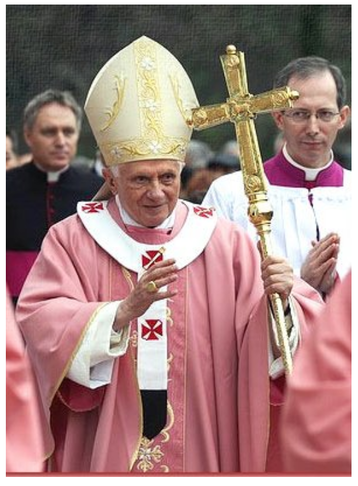
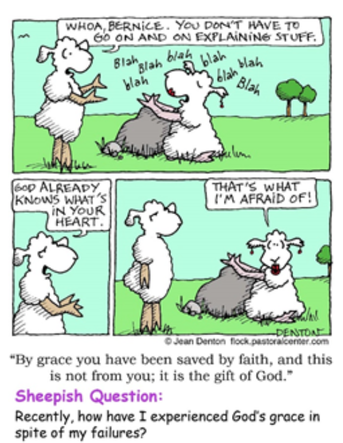

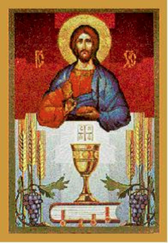

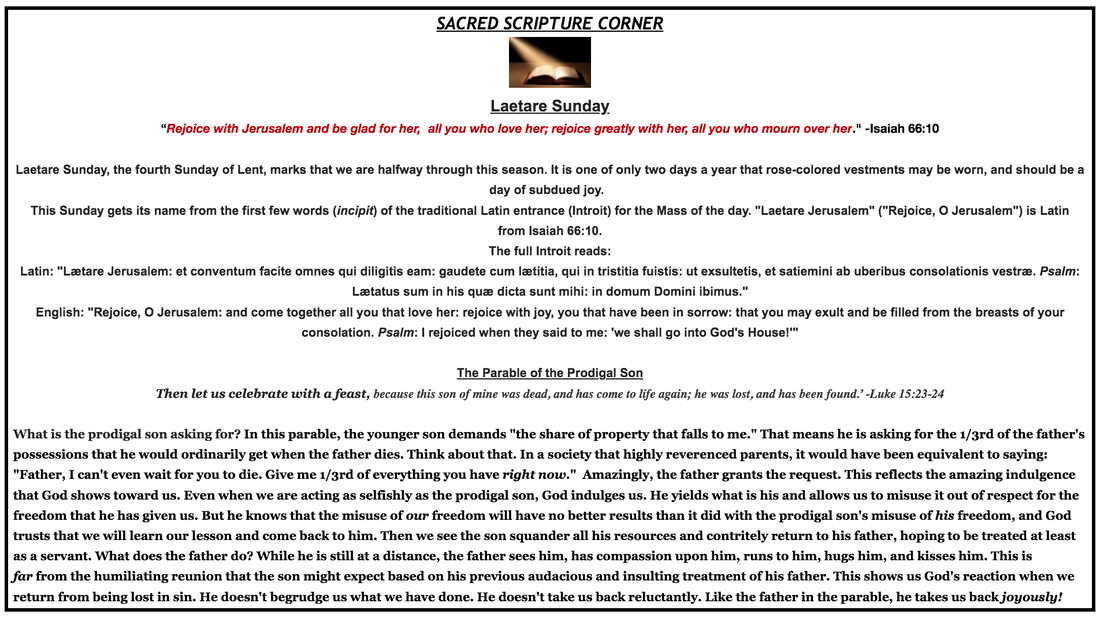


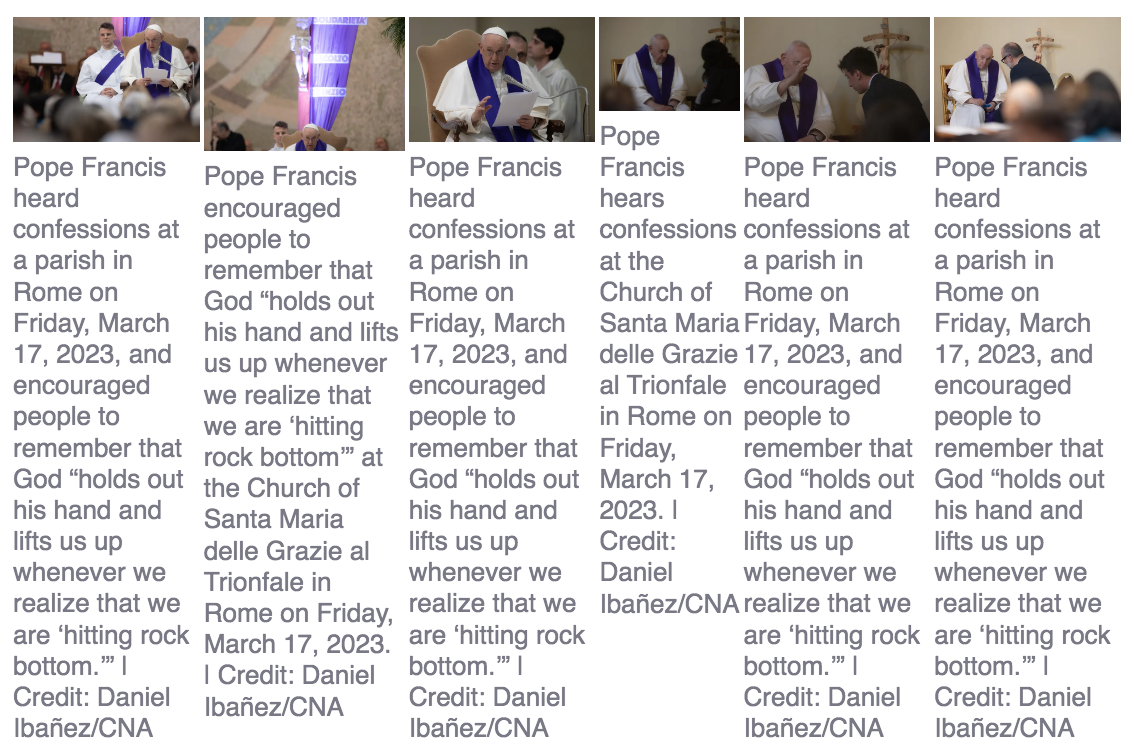

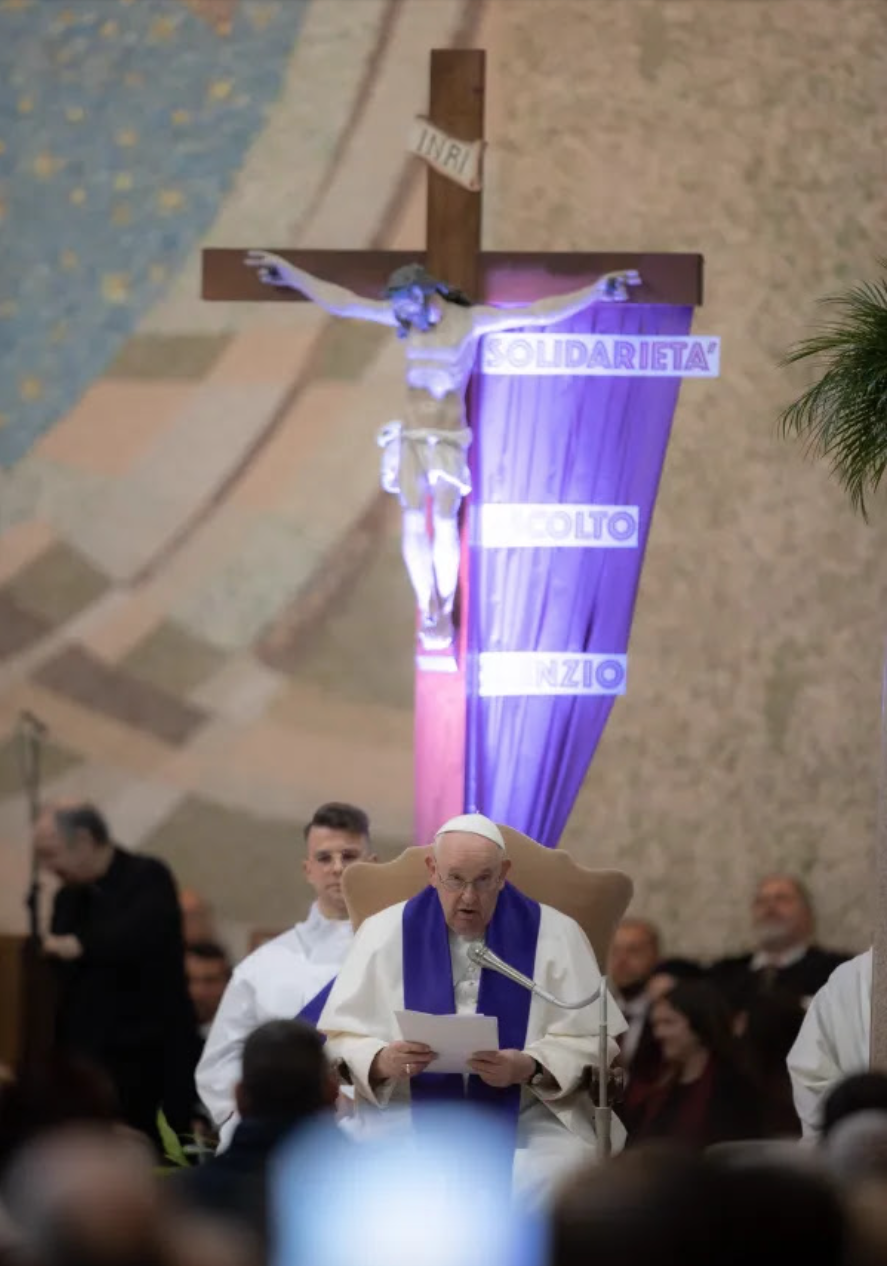
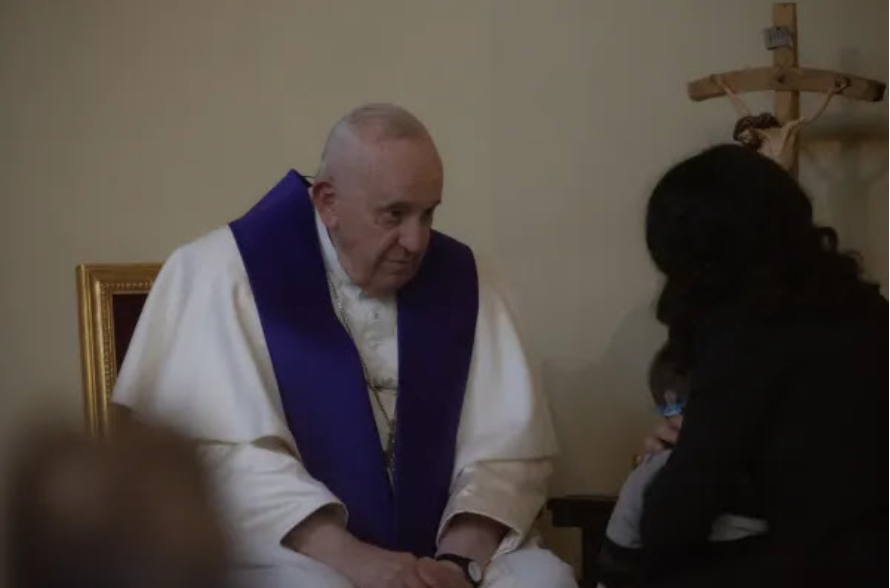

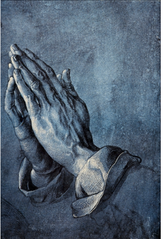
 RSS Feed
RSS Feed
